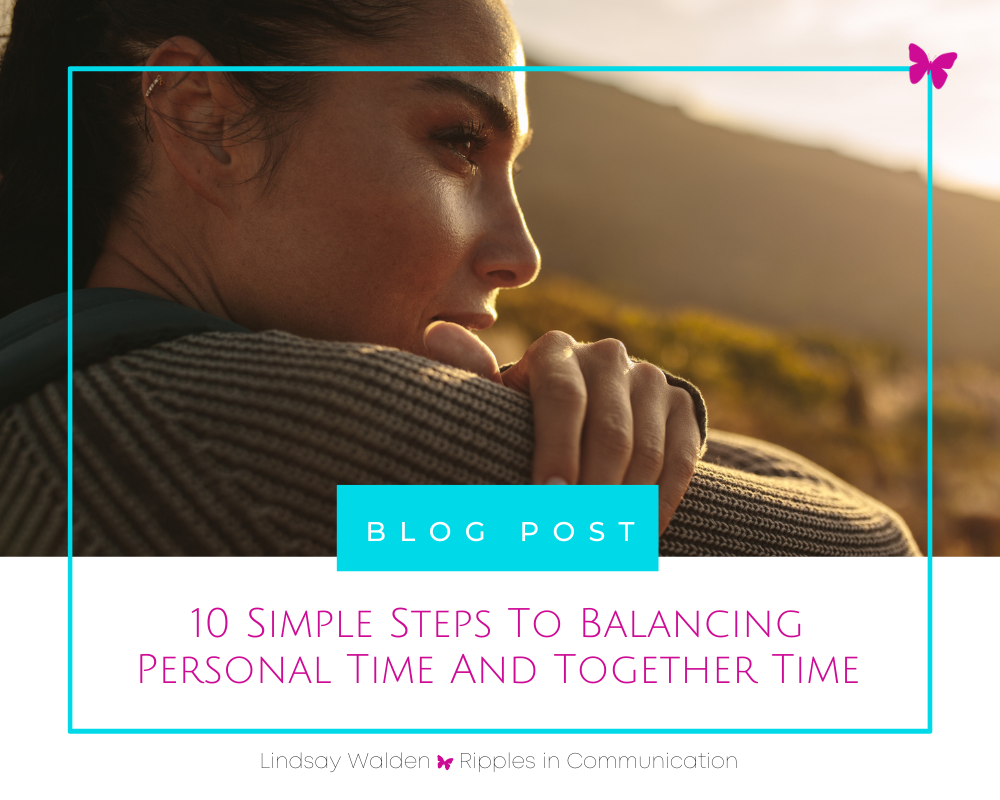Mastering 8 Steps to Overcome Relationship Issues
Relationships are never completely smooth sailing, and it's natural for couples to face challenges and disagreements along the way. However, when problems persist and remain unresolved, it can create a sense of frustration and uncertainty. In this blog post, we will explore practical advice for couples who find it difficult to address their problems and offer a step-by-step approach to resolving conflicts.
Have you gotten my FREE Relationship Communication Guide yet? Start building an authentic, conscious, and thriving relationship with your partner TODAY. Say goodbye to misunderstandings, conflicts, and missed opportunities for a deeper connection. These are the same tips and practical advice I give to my clients every day. With this guide, you'll be equipped to navigate any communication challenge and build a strong and fulfilling bond with your partner. Click the button below to enter your email address and I will send the guide to your inbox right away!
Struggling with relationship problems? These 8 proven steps will guide you towards resolution and deeper connection with your loved one. Take the first step today!
8 Steps to Overcome Relationship Issues
1. Acknowledge the Need for Communication:
The first step in resolving relationship problems is recognizing the importance of open and honest communication. Avoid the temptation to brush issues under the rug or postpone discussions indefinitely. By acknowledging the presence of unresolved issues, you are taking the necessary first step towards finding a solution.
2. Schedule Time for Important Conversations:
To prevent issues from piling up and reaching a boiling point, proactively schedule dedicated time with your partner to discuss important matters. Approach your partner respectfully and express your desire to address unresolved issues. For example, you might say, "Hey, I've noticed we have some unresolved topics that need attention. Could we schedule some time this weekend to have a focused conversation about them?"
3. Prepare for Emotional Vulnerability:
When engaging in conversations about emotions, needs, desires, and other significant aspects of your relationship, it's common to feel vulnerable. Recognize that this vulnerability is a normal part of the process. Approach these discussions with empathy and compassion, creating a safe space for both partners to express their thoughts and feelings without fear of judgment.
4. Implement Pattern Interrupts:
If conflicts seem to escalate quickly or become overwhelming, consider implementing pattern interrupts. Instead of trying to resolve all problems in a single conversation, create a list of topics to address and allocate short, regular intervals to discuss them. For example, commit to spending 15 minutes each day for a week addressing one item from the list. This approach prevents conversations from becoming excessively heated and allows for gradual progress.
5. Remember That You're on the Same Team:
During intense discussions, it's crucial to remind yourselves that you're both on the same team. Avoid falling into a scorekeeping mentality, where you focus solely on winning arguments or proving each other wrong. Instead, approach conflicts with the mindset of working together to find solutions that benefit both partners and the relationship as a whole.
Ready to find happiness and harmony in your relationship? These 8 actionable steps will guide you towards resolution, growth, and a deeper connection with your loved one.
6. Evaluate Willingness to Work Through Struggles:
If one or both partners are unwilling or unable to work through the underlying issues, it's important to assess the situation. Being on the same team means being committed to overcoming challenges together. If either party is consistently resistant to resolving conflicts or lacks the willingness to work through difficulties, it may be necessary to seek professional help or consider whether the relationship is truly fulfilling for both individuals.
7. Deal with Residue Buildup:
Unresolved issues and unspoken problems can accumulate like a residue within a relationship. This buildup can strain the connection and hinder the growth of the partnership. Recognize the importance of addressing this residue, whether it stems from past arguments or underlying concerns. By actively engaging in open and honest conversations, you can clean away the residue and pave the way for a healthier relationship.
8. Establish a New Structure:
Once you've dealt with the residue, establish a new structure that promotes ongoing communication and conflict resolution. Regularly check in with each other, fostering an environment where both partners feel comfortable expressing their thoughts and concerns. By doing so, you create a foundation for maintaining a strong and resilient relationship as you move forward together.
No relationship is inherently "doomed" unless both partners are unwilling to address their problems and work through them. By implementing a step-by-step approach to conflict resolution, couples can foster healthier communication, understand each other's needs, and create a more fulfilling partnership. Remember, it takes effort. You can do this.
And if you need some outside help, I am here for you. Send me a message and let’s see what we can work out.
Discover proven strategies to overcome relationship issues and cultivate lasting happiness. Explore these 8 transformative steps towards a healthier and more fulfilling partnership.







